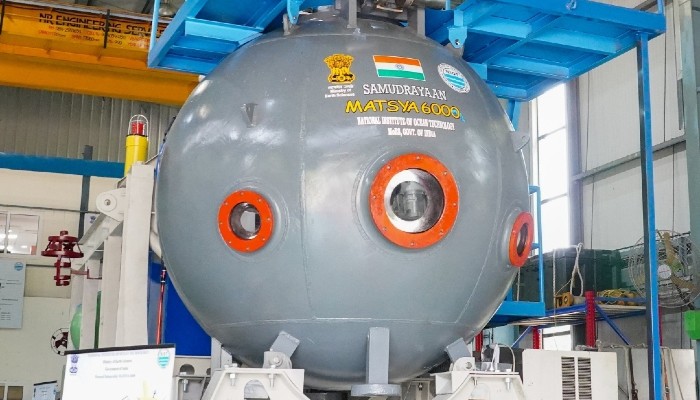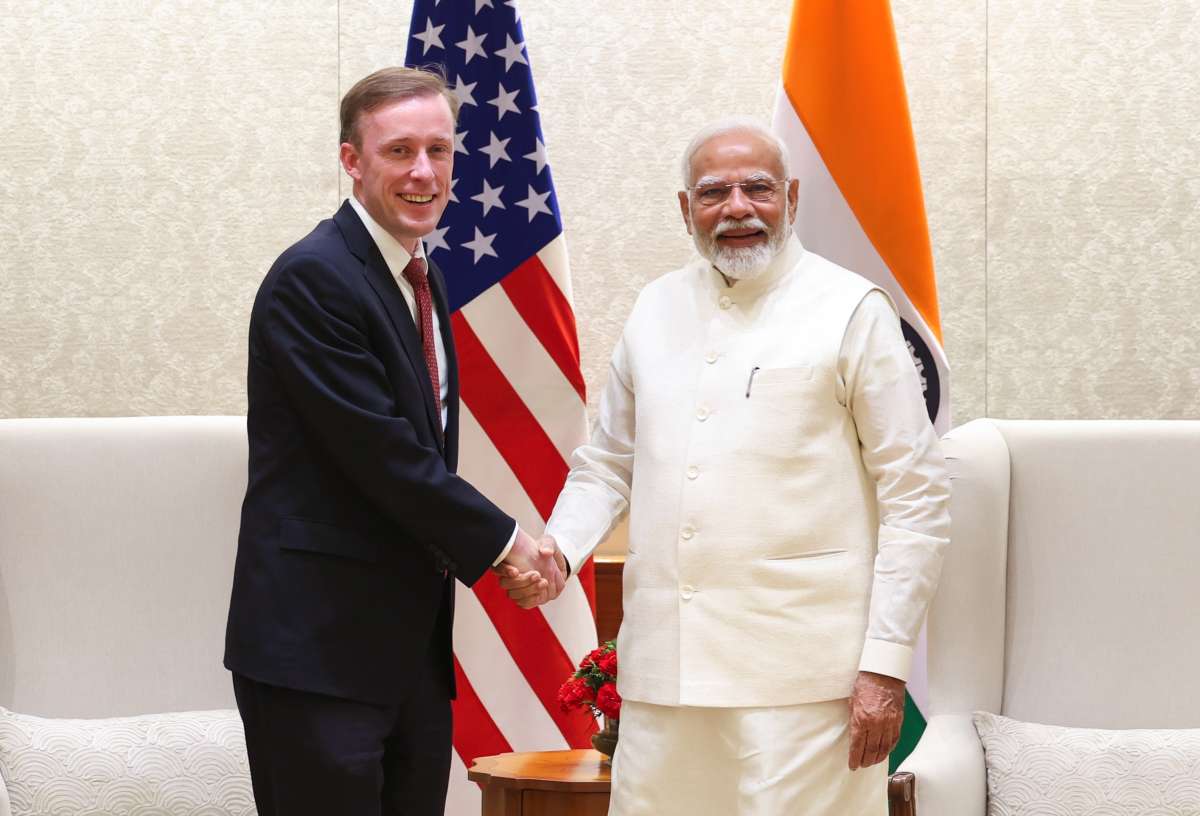Expressing pride and optimism about the progress of the Deep Sea Mission, Singh emphasised that India is joining an exclusive group of nations capable of such advanced oceanic exploration….reports Asian Lite News
India is poised to become the sixth country in the world to launch its own Deep Sea Mission, a groundbreaking endeavour that promises to unlock significant scientific and economic potential. This development was highlighted by Union Minister of State Jitendra Singh during a meeting in New Delhi on Saturday (June 15, 2024) to discuss the Ministry of Earth Sciences’ 100-day Action Plan.
Singh holds Independent Charge of the ministries of Science and Technology, Earth Sciences, PMO, Atomic Energy, Space, Personnel, Public Grievances, and Pensions,
Expressing pride and optimism about the progress of the Deep Sea Mission, Singh emphasised that India is joining an exclusive group of nations capable of such advanced oceanic exploration. The Minister stressed the importance of the mission in achieving a resilient blue economy that empowers communities dependent on the ocean for their livelihoods.
Achieving a Resilient Blue Economy
The Deep Sea Mission is not solely focused on mineral exploration. It encompasses a broader scope, including the development of ocean sciences, the exploration of marine flora and fauna, and the conservation of marine biodiversity. This holistic approach aims to create sustainable opportunities and enhance the livelihoods of those who rely on the ocean’s resources.
Singh highlighted the potential economic benefits of the mission, noting its multi-fold impact on various sectors. By exploring and studying the deep-sea environment, the mission will contribute to the discovery of rare earth metals and polymetallic nodules in the Indian seabed. These resources hold significant commercial value and can be pivotal in reducing India’s dependence on foreign sources of critical minerals.
Pioneering Indigenous Technology
The Union Minister praised the National Institute of Ocean Technology (NIOT) for its efforts in developing the Matsyayaan 6000, a state-of-the-art submersible capable of diving to depths of 6,000 meters. He directed officials to complete the first stage of harbor trials by September 2024, with subsequent trials planned for completion by 2026.
A notable achievement in this endeavor is the collaboration between NIOT and the Indian Space Research Organisation (ISRO) in developing a titanium hull for the submersible. This hull is designed to withstand extreme underwater pressures, ensuring the safety and integrity of the vessel during deep-sea missions. Dr. Singh also inquired about the progress of self-floatation technology, which would enable the submersible to remain submerged for up to 72 hours in case of emergencies.
Singh emphasised that the Deep Sea Mission has the potential to significantly boost the Indian economy. By leveraging indigenous technology and expertise, India aims to minimize its reliance on foreign capabilities in deep-sea exploration. This mission is expected to facilitate the commercial exploitation of seabed resources, thereby contributing to the nation’s economic growth.
The exploration and study of deep-sea flora and fauna will also provide valuable scientific insights, aiding in the conservation of marine biodiversity. The mission’s findings could lead to new discoveries in marine biology and ecology, furthering India’s scientific knowledge and research capabilities.
The meeting, chaired by Singh, included the presence of M Ravi Chandran, Secretary of the Ministry of Earth Sciences, along with other senior officials. Their participation underscored the collaborative effort required for the successful implementation of the Deep Sea Mission.
The mission’s projected four-hour descent time for the submersible highlights the technological advancements and meticulous planning involved in this ambitious project. As India progresses with its Deep Sea Mission, it stands to make significant contributions to oceanic exploration, scientific research, and economic opportunities.
India’s Deep Sea Mission marks a monumental step forward in the nation’s scientific and economic journey. By becoming the sixth country to embark on such a mission, India is reinforcing its commitment to advancing scientific knowledge, fostering sustainable development, and securing a prosperous future through the responsible exploration and utilization of oceanic resources.
This mission not only positions India at the forefront of deep-sea exploration but also underscores the nation’s resolve to develop indigenous technologies and capabilities. As the Deep Sea Mission unfolds, it promises to unlock new frontiers in marine science, create economic opportunities, and contribute to the global understanding of our oceans.
The Deep Sea Mission is a testament to India’s innovative spirit and its dedication to harnessing the potential of its natural resources for the betterment of society and the economy. (India News Network)
ALSO READ: Modi, Sullivan Discuss Deepening India-US Strategic Partnership














